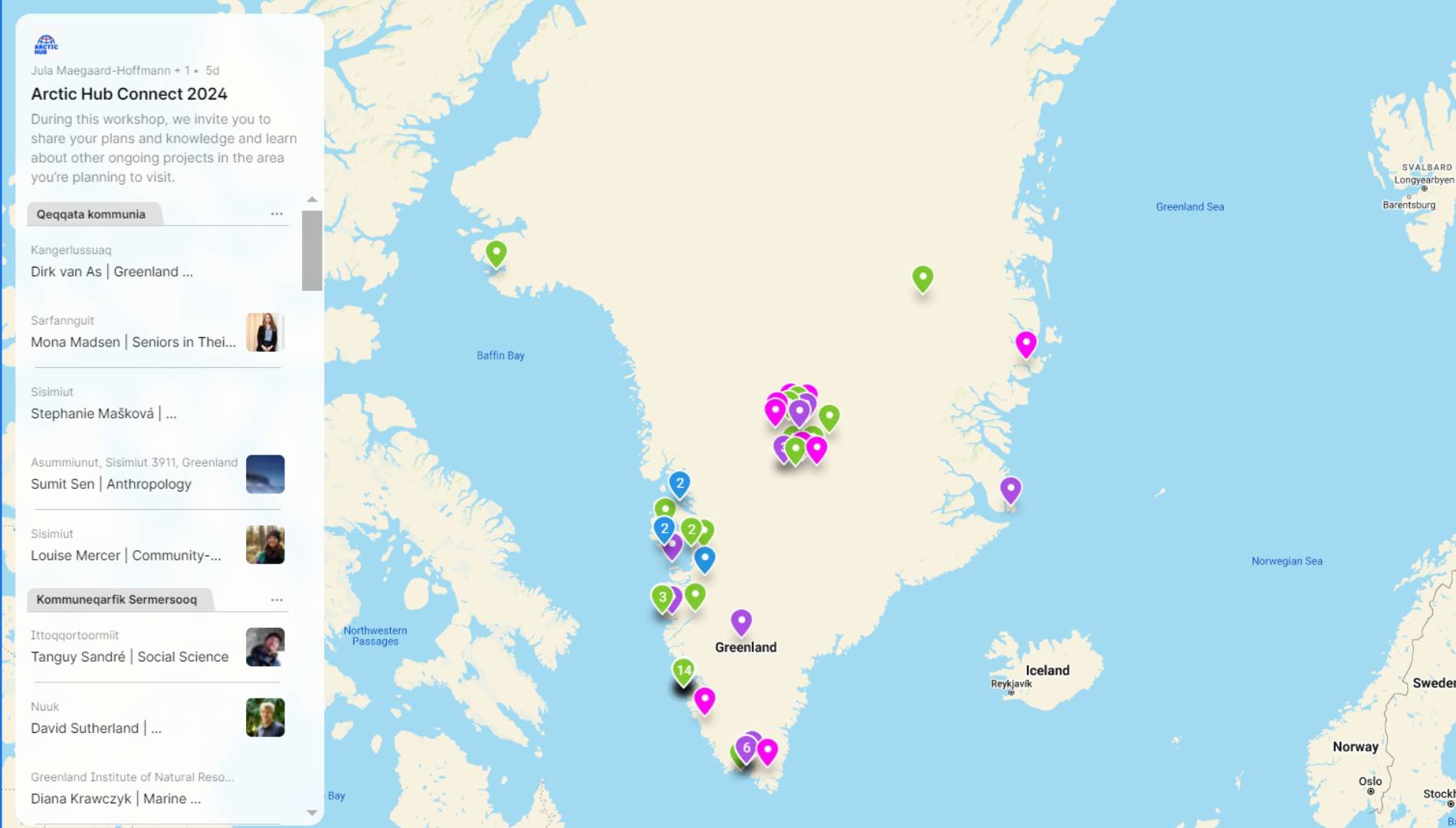Explore the map of research in Greenland in 2024

By Nicoline Larsen
Recently, 72 researchers from various countries, disciplines, and organizations shared their plans for research in Greenland in 2024 during an online workshop organized by Arctic Hub.
Participants included people from Greenland, Denmark, the USA, England, Finland, Switzerland, Germany, and Canada, researching diverse topics such as health, decolonization, climate, and education.
Arctic Hub Connect enhances the overview
The Arctic Hub Connect workshop invites researchers to share their planned research activities for the upcoming season with each other and the Greenlandic community. This year, the workshop took place on February 7th.
“As most people know, many researchers are coming to Greenland, and it is a goal for Naalakkersuisut, the Government of Greenland, and Arctic Hub to create a better overview of their research activities. Therefore, we are delighted that so many researchers chose to participate in this year’s Arctic Hub Connect, as it truly helps improve the overview of research in Greenland,” says Jula Maegaard-Hoffmann, Head of the Arctic Hub Secretariat.
A wish from Naalakkersuisut
Since there is no general requirement for researchers in Greenland to register, a complete overview of research activities does not exist. However, a central part of Naalakkersuisut’s research strategy is that all research conducted in Greenland should benefit Greenland. To achieve this goal, it’s necessary to know what research is being conducted in the country, and this heavily relies on the researchers’ willingness to cooperate.
“This is the third time Arctic Hub has held a workshop of this nature, and we see a significant increase in participation each time. This shows me that researchers share the goal of creating a better overview of research in Greenland,” says Jula Maegaard-Hoffmann.
Besides Arctic Hub Connect, there is also Isaaffik.org, which is used to share information and coordinate research logistics and infrastructure. This platform is especially popular among natural scientists.
A map for the population
In addition to researchers sharing their plans for the upcoming field season, the workshop also provides them with the opportunity to have meaningful discussions with each other – such as how to ethically involve the local population and minimize the so-called ‘research fatigue’ that describes a situation where parts of a population are asked to participate in many different research projects – so many that they eventually become tired of it.
“We hope the interactive map can help prevent parts of the population from being overburdened. The map has the dual function of enabling researchers to coordinate with each other, thus avoiding overloading the same citizens with too many research projects. But it is also an invitation to the population, so they have a place to go and see what research activities are taking place in their local area,” says Jula Maegaard-Hoffmann.
The map is now publicly accessible; everyone is invited to explore it right here.